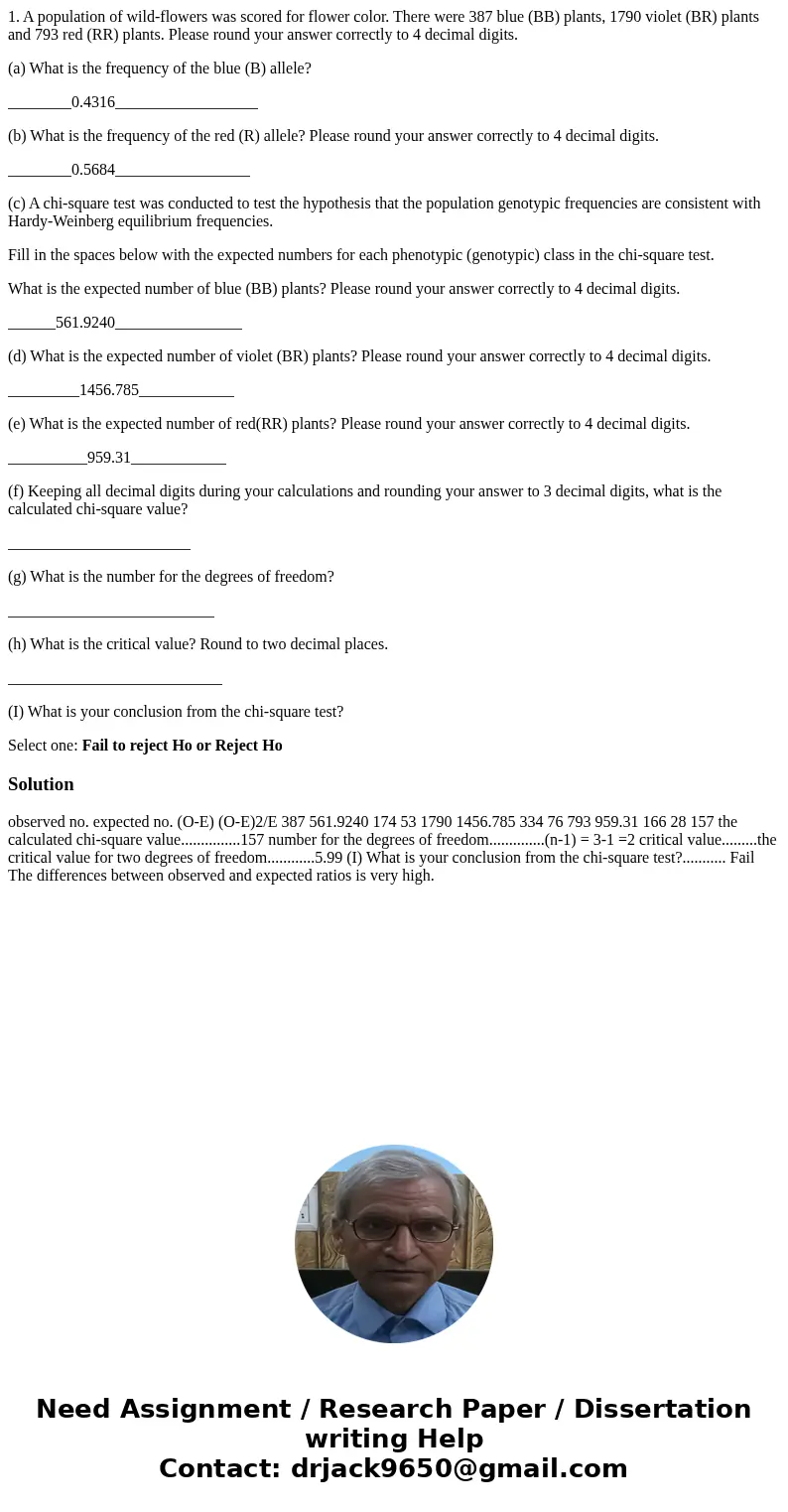1 A population of wildflowers was scored for flower color Th
1. A population of wild-flowers was scored for flower color. There were 387 blue (BB) plants, 1790 violet (BR) plants and 793 red (RR) plants. Please round your answer correctly to 4 decimal digits.
(a) What is the frequency of the blue (B) allele?
________0.4316__________________
(b) What is the frequency of the red (R) allele? Please round your answer correctly to 4 decimal digits.
________0.5684_________________
(c) A chi-square test was conducted to test the hypothesis that the population genotypic frequencies are consistent with Hardy-Weinberg equilibrium frequencies.
Fill in the spaces below with the expected numbers for each phenotypic (genotypic) class in the chi-square test.
What is the expected number of blue (BB) plants? Please round your answer correctly to 4 decimal digits.
______561.9240________________
(d) What is the expected number of violet (BR) plants? Please round your answer correctly to 4 decimal digits.
_________1456.785____________
(e) What is the expected number of red(RR) plants? Please round your answer correctly to 4 decimal digits.
__________959.31____________
(f) Keeping all decimal digits during your calculations and rounding your answer to 3 decimal digits, what is the calculated chi-square value?
_______________________
(g) What is the number for the degrees of freedom?
__________________________
(h) What is the critical value? Round to two decimal places.
___________________________
(I) What is your conclusion from the chi-square test?
Select one: Fail to reject Ho or Reject Ho
Solution
observed no. expected no. (O-E) (O-E)2/E 387 561.9240 174 53 1790 1456.785 334 76 793 959.31 166 28 157 the calculated chi-square value...............157 number for the degrees of freedom..............(n-1) = 3-1 =2 critical value.........the critical value for two degrees of freedom............5.99 (I) What is your conclusion from the chi-square test?........... Fail The differences between observed and expected ratios is very high.
 Homework Sourse
Homework Sourse